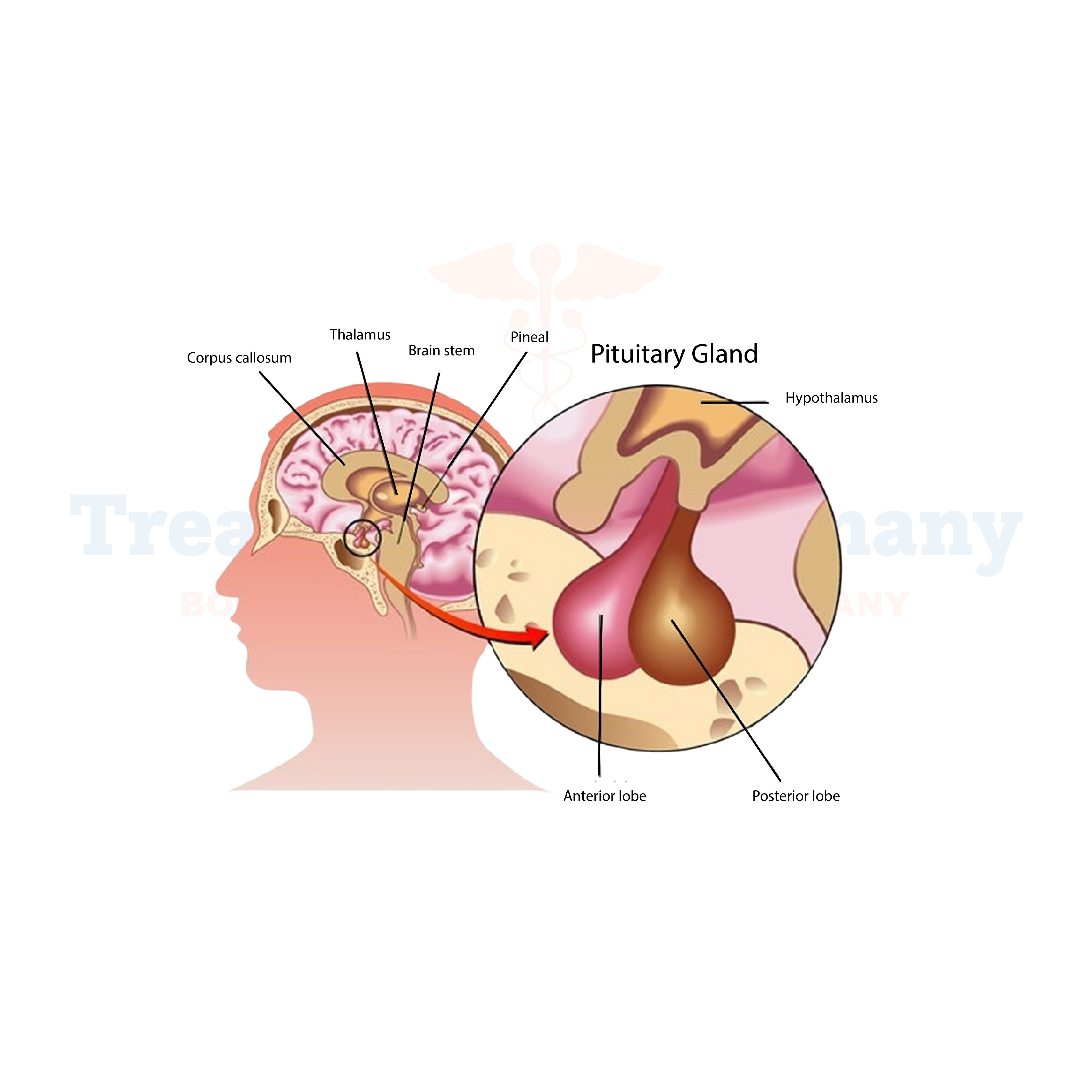What is Hypopituitarism?
Hypopituitarism is a rare condition that occurs when the pituitary gland fails to produce one or more of its hormones at normal levels. T
he pituitary gland, located at the base of the brain, is often referred to as the "master gland" because it controls the function of other glands in the body, such as the thyroid, adrenal glands, and ovaries or testes. When the pituitary gland doesn't function properly, it can lead to a range of symptoms and health complications.
Side Effects of Hypopituitarism:
The symptoms of hypopituitarism can vary depending on which hormones are deficient and the severity of the deficiency.
Common symptoms may include fatigue, weight loss or gain, decreased libido, infertility, irregular menstruation in women, erectile dysfunction in men, weakness, dizziness, and changes in appetite. In children, hypopituitarism can lead to growth delays and delayed puberty.
If left untreated, hypopituitarism can result in serious complications such as adrenal crisis or pituitary apoplexy, a sudden bleeding into the pituitary gland.
How is Hypopituitarism Diagnosed?
Diagnosing Hypopituitarism involves a thorough evaluation by a healthcare professional, typically an endocrinologist.
The diagnostic process may include a review of medical history, a physical examination, and various tests to assess hormone levels. Blood tests can measure levels of hormones produced by the pituitary gland and other glands in the body.
Imaging studies such as magnetic resonance imaging (MRI) may also be ordered to visualize the pituitary gland and assess for any structural abnormalities.
Potential Treatments of Hypopituitarism:
Treatment for hypopituitarism aims to replace deficient hormones and manage symptoms effectively.
The specific treatment plan will depend on the hormones that are deficient and the underlying cause of hypopituitarism. Hormone replacement therapy is often necessary and may include medications such as thyroid hormone, cortisol, estrogen or testosterone, and growth hormone.
Regular monitoring of hormone levels and adjustments to medication doses may be required to maintain optimal hormone balance.
👉 Contact us for further information and receive a complimentary consultation.


.webp)
 (1).webp)

.webp)
 (1).webp)


.webp)
 (1).webp)

.webp)
 (1).webp)
